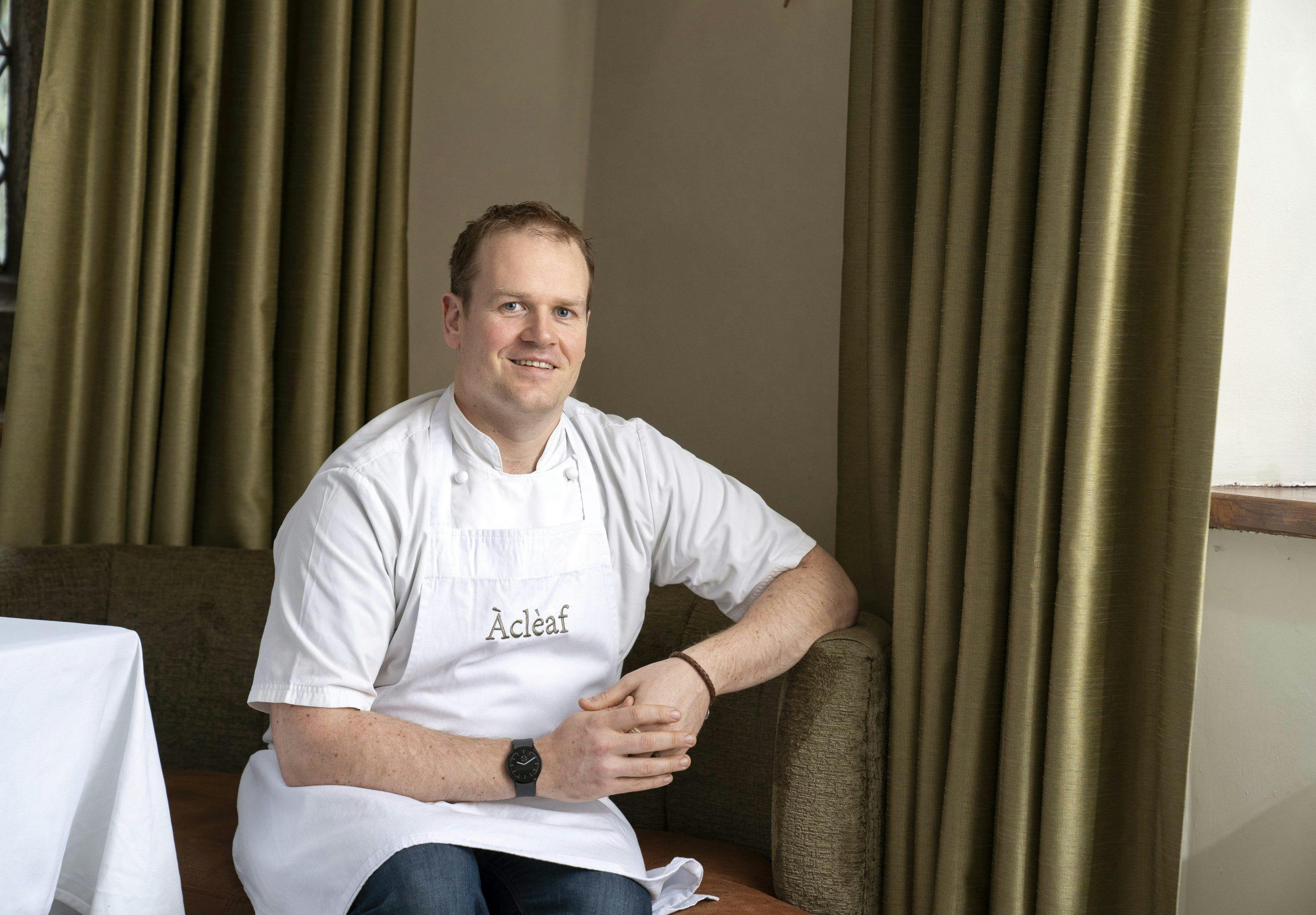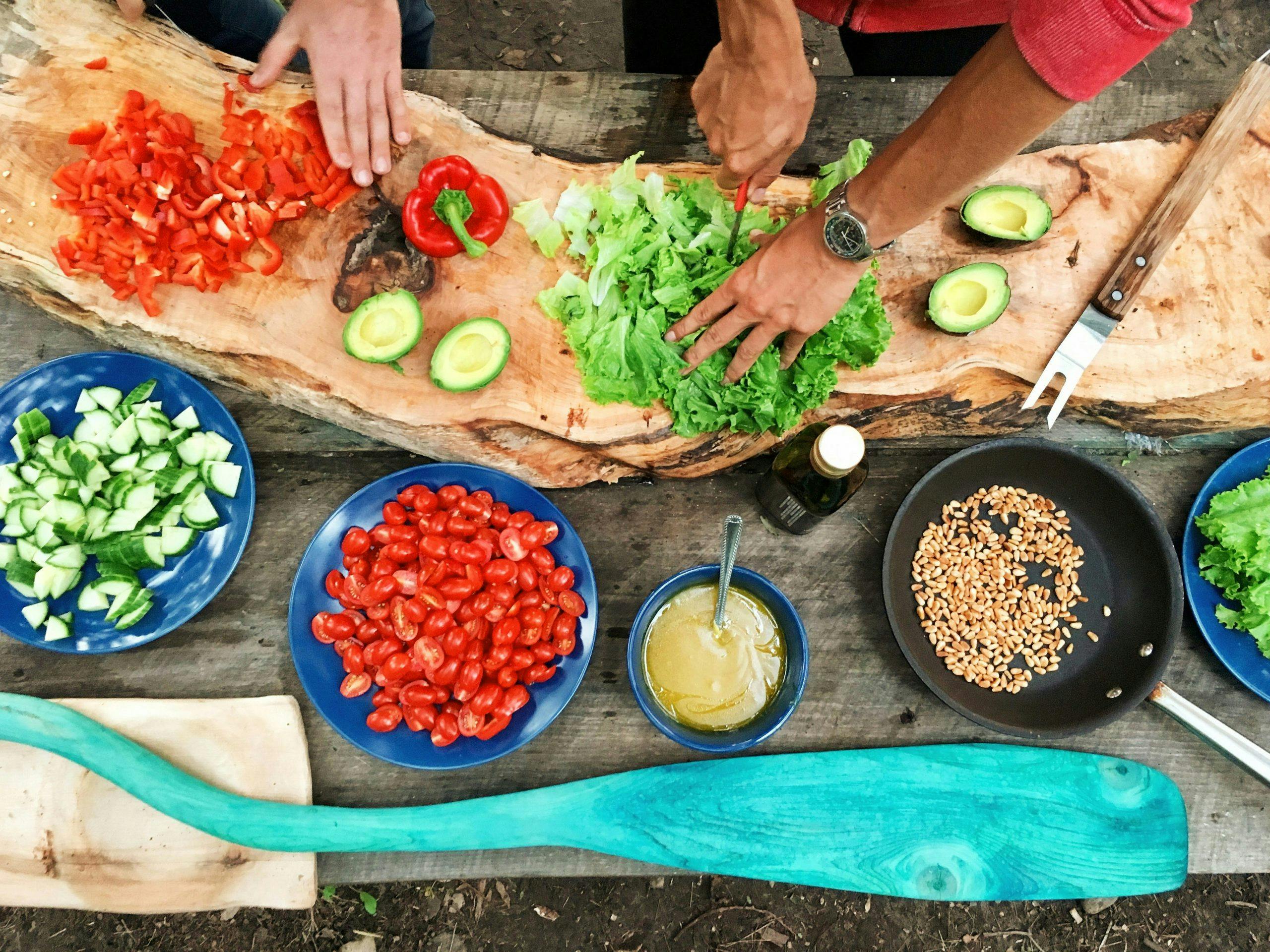Food for Thought: Sustainable Practices in Michelin Star Restaurants
21 January 2025
Michelin-starred dining has long been synonymous with exceptional quality and innovation, but today’s leading chefs are adding another essential ingredient: sustainability.
Across the PoB Hotels collection, some of the UK’s finest sustainable Michelin star restaurants are redefining luxury, integrating eco-conscious practices into every aspect of their operations. From zero-waste cooking to hyper-local sourcing, these chefs are setting new standards for eco-friendly dining UK travellers will appreciate.
Here’s an inside look at how culinary leaders are merging ethics and excellence, creating dining experiences that are as responsible as they are refined…
The Power of Provenance
For many Michelin-starred chefs, sustainability starts with knowing their suppliers. At The Dining Room at Hambleton Hall, Chef Director Aaron Paterson takes a hands-on approach, personally visiting farms to see where ingredients are grown and how they reach the kitchen. “Understanding the entire process—from farm to fork—is crucial,” Paterson explains. This ethos extends to their commitment to local suppliers, including lamb from nearby farms and game from local shoots. “Sustainable produce doesn’t require extra thought; it’s about respecting what we have locally,” he adds. Their use of local rapeseed oil is just one example of this thoughtful sourcing, adding a unique regional touch to their dishes. At SOURCE at Gilpin Hotel and Lake House, Executive Chef Ollie Bridgewater champions transparency and responsibility. “Our food style centres around key ingredients sourced responsibly,” he says. The restaurant’s fish comes from Cornish day boats, minimising impact on marine ecosystems. Their Net Zero beef, reared by Jim Beary at Gaythorne Farm, exemplifies their commitment to ethical sourcing. “It’s world-class beef with low food miles,” Bridgewater notes. This meticulous attention to provenance ensures that every dish tells a story of sustainability, a narrative discerning diners deeply appreciate.
From Garden to Plate
On-site gardens are more than just a trend—they’re a cornerstone of many sustainable Michelin star restaurants. At The Dining Room at Gravetye Manor, the expansive garden serves as the backbone of the restaurant’s dining style. Menus are created around seasonal produce, reducing reliance on external suppliers and ensuring exceptional freshness. Composting is central to this closed-loop system, with around 50% of kitchen waste being compostable. The head gardener treats compost with the same care and precision as a chef would treat a stock, making it a fundamental part of the process. This holistic approach minimises waste and maximises the potential of every ingredient.
Similarly, at Shaun Rankin at Grantley Hall, the kitchen garden is central to their sustainability efforts. Ingredients are sourced within a 30-mile radius, reducing food miles and supporting local farmers. “Every meal we prepare nourishes the soil for the next,” Head Chef Shaun Rankin reflects. The restaurant’s upcoming addition of a Riden Composter will further enhance their zero-waste practices, deepening their connection to the land. “Sustainability isn’t a buzzword here; it’s the soul of everything we do,” he adds.
At Palé Hall, the ethos of sustainability permeates every aspect of the dining experience. The Henry Robertson Dining Room, renowned for its Michelin Green Star, offers menus that showcase the finest, responsibly sourced ingredients from the region. Every dish reflects a commitment to fresh, seasonal, and organically produced food, creating an exquisite yet eco-conscious dining experience. This dedication to sustainability underscores why green Michelin star dining is becoming a hallmark of modern luxury.
Innovative Zero-Waste Practices
Zero-waste cooking is a hallmark of many sustainable restaurants, requiring creativity and resourcefulness. At The Cedar Tree at Farlam Hall, Chef Patron Hrishikesh Desai ensures that every part of a vegetable or protein is utilised. “Guests are often surprised by the care we take to minimise waste,” he says. From fermenting and dehydrating produce to controlling utilities like heating, every detail is considered. “Sustainability is about cultivating good procedures and following them sincerely,” Desai explains.
At Whatley Manor, Executive Chef Ricki Weston takes a similarly rigorous approach. “Our no-dig kitchen garden eliminated pesticides in 2021, and we separate all food waste for anaerobic digestion,” he shares. Waste oil is converted into biodiesel, reducing emissions by 88%. Weston’s commitment to zero waste even extends to bread, transforming leftovers into crackers served as ‘Yesterday’s Bread.’ “It’s about continuous improvement and rethinking everything we do,” he notes.
SOURCE’s Bridgewater highlights the importance of reducing waste creatively. “We challenged ourselves to use scraps and peelings in new ways,” he explains. A standout example is their beetroot pulp XO sauce—an inventive, zero-waste condiment that exemplifies their sustainable dining practices.
Sustainability Meets Sophistication
Balancing sustainability with luxury dining requires both creativity and commitment, and at Gravetye Manor, the two are inseparable. They believe that high-end dining without sustainability lacks integrity, so the restaurant’s plant-forward menu, with flexible intermediate courses, is designed to adapt to what’s fresh and available, minimising waste.
At Grantley Hall, Rankin’s hyper-seasonal tasting menu reduces waste while offering a rich variety of flavours. “It’s about showcasing Yorkshire’s produce with respect and ingenuity,” he says. This commitment resonates with modern diners, who increasingly expect their culinary experiences to align with their values. SOURCE’s Bridgewater agrees: “Quality sometimes requires sourcing from afar, but it’s about balance and making mindful decisions.”
Celebrating Seasonal Ingredients
Michelin star sustainability is at the heart of these chefs' approaches, with seasonality as a guiding principle as they revel in the changing bounty of their local areas. At Hambleton Hall, Paterson eagerly anticipates the arrival of local game, while at Gravetye Manor, the focus turns to forced rhubarb, grown under Victorian pots. This uniquely delicious ingredient is particularly celebrated in dishes like soufflé.
Weston at Whatley Manor highlights the versatility of root vegetables, turning them into hearty, sustainable winter dishes. Meanwhile, Desai at Farlam Hall pairs them with local venison, celebrating the robust flavours of the season. “These ingredients are not only sustainable but also rich in flavour,” he notes.
Rankin at Grantley Hall has a special fondness for kohlrabi, a versatile vegetable that epitomises zero-waste cooking. “We steam, pickle, compress, and purée it,” he says. As winter approaches, he also looks forward to working with forced rhubarb from Yorkshire’s renowned Tomlinson Family.
Looking to the Future
Sustainability is an ongoing journey, and each restaurant has ambitious plans for the future. At Farlam Hall, Desai aims to achieve zero waste within two years, while Whatley Manor continues to refine its eco-friendly practices. “It’s about moving the whole operation forward,” Weston explains.
For SOURCE, the focus is on incremental improvements. “Small, mindful steps are the most effective way to make progress,” Bridgewater says. Similarly, Grantley Hall’s Rankin sees 2025 as a pivotal year, with plans to expand their kitchen garden and cultivate organic mushrooms. “It’s an exciting chapter in our journey,” he shares.
Related Content
More Stories
British Travel
10 Winter-Perfect British Getaways
30 January 2026
Winter wellness in the UK pairs beautifully with cosy British escapes. Discover the hotels and landscapes that make the colder months worth savouring
Flavour & Savour
A Rather Refined Veganuary: Garden-Led Plates & Plant-Forward Pleasure
22 December 2025
Discover a fresh take on Veganuary with creative plant-led dishes, spa soaks and hotels that make eating green feel effortlessly glamorous.







